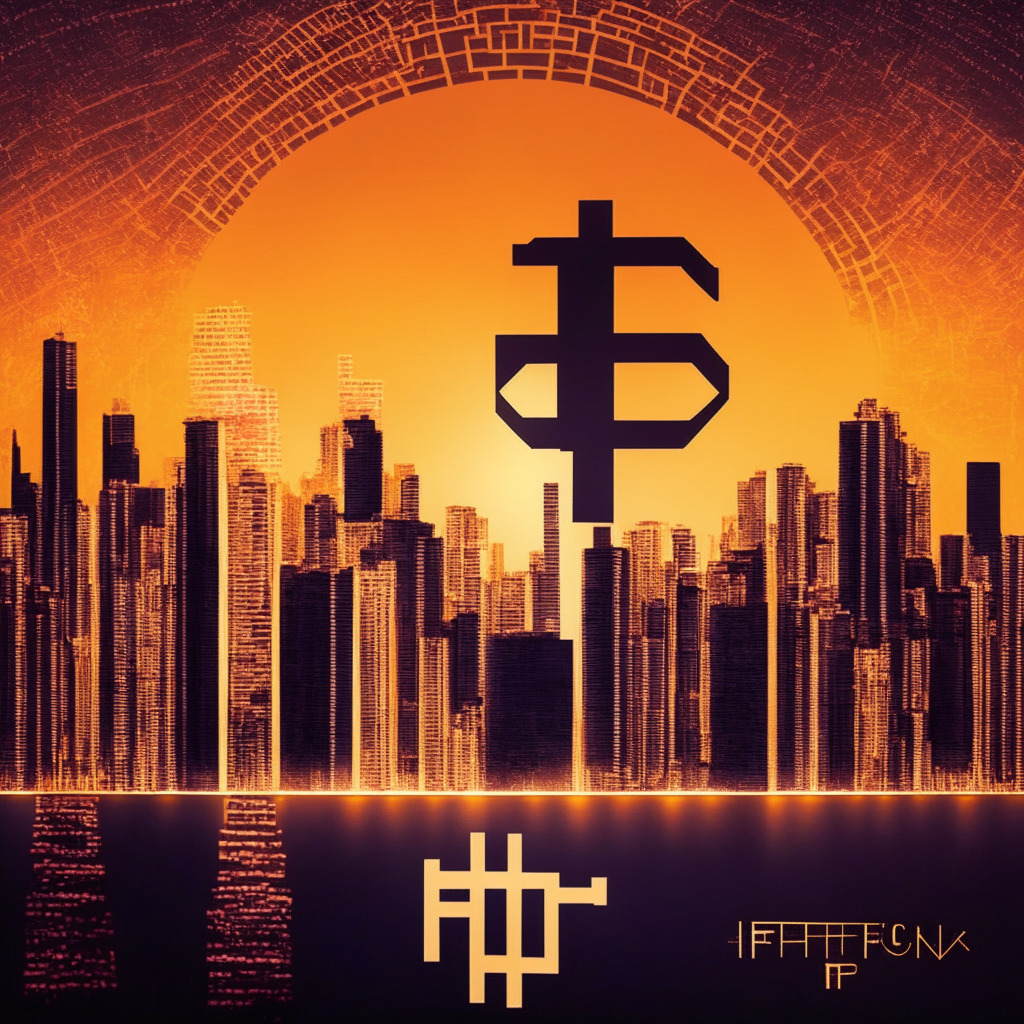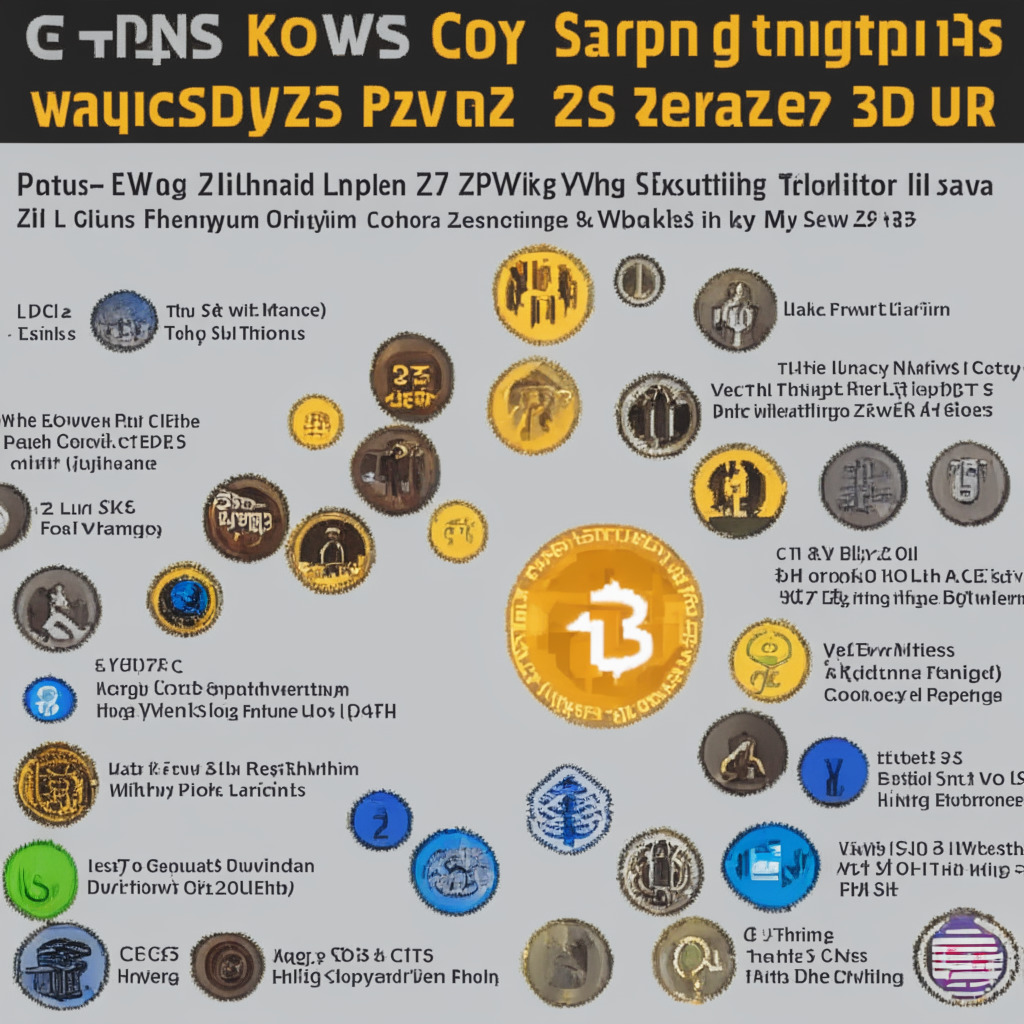Hong Kong’s crypto trading landscape is changing as HashKey, a licensed exchange, begins offering services to non-institutional investors. Acquiring two licenses from the local Securities and Futures Commission, HashKey paves the way for retail and automated crypto trading services, aiming for increased transparency and improved investor confidence. However, the new advances underscore the need for careful regulation and safety measures in digital finance.
Search Results for: SFC
South Korea’s Strides Towards a Transparent Crypto Space: Is Disclosure the Future Norm?
Starting January 2024, South Korean companies dealing with cryptocurrencies will be required to disclose their transactions to the Financial Services Commission (FSC). This mandatory requirement, established by the Virtual Assets Act, aims to boost accounting transparency within digital asset transactions and protect investors by fostering a transparent crypto market.
Singapore vs Hong Kong: Contrasting Crypto Strategies Guide Blockchain Advancement
“Singapore plans to impose a trust requirement on cryptocurrency exchanges to boost investor confidence and protection. However, the Monetary Authority of Singapore cautions investors about speculative and risky digital token trading. Meanwhile, Hong Kong is promoting crypto participation and allowing retail investors to trade virtual assets.”
HSBC Hong Kong Embraces Crypto ETFs: Excitement vs Reality in the Blockchain World
HSBC Hong Kong’s recent addition of access to Bitcoin and Ether exchange-traded funds (ETFs) highlights the growing interest in cryptocurrency investments among larger institutions. However, investors should be cautious not to overreact, as the adoption of crypto investments by mainstream institutions may happen gradually and the technology is still evolving.
Hong Kong’s Web3 Regulation: Balancing Innovation and Investor Protection
Hong Kong embraces Web3 regulation by incorporating virtual asset providers into the regulatory system, fostering innovation and strengthening market trust. New rules enforce Anti-Money Laundering guidelines and investor protection laws while permitting retail investors to trade virtual assets.
Crypto Exodus from the US: Regulatory Hostility Pushing Innovation Overseas
Crypto is leaving the US due to a hostile regulatory landscape, with investors seeking clear frameworks for digital assets. Asia, Middle East, and Europe are emerging as crypto hubs, offering progressive regulations and support for the industry. Without a balanced approach, the US risks losing its innovation capital status.
Hong Kong’s Crypto Ambitions: Banks Grapple with Regulation and Partnership Prospects
The Hong Kong Monetary Authority (HKMA) is encouraging major banks to engage with cryptocurrency clients, following Hong Kong’s efforts to become a significant global center for the crypto industry. However, potential prosecutions related to illicit financial activities may make banks hesitant to work with crypto exchanges.
Hong Kong Welcomes Crypto Exchanges: Coinbase Explores Global Expansion Amid Regulatory Challenges
Hong Kong welcomes global virtual asset trading operators, including Coinbase, with the region’s Securities and Futures Commission (SFC) accepting crypto trading platform license applications. This move offers potential growth and friendlier regulations amid increasing scrutiny on cryptocurrency exchanges in the United States and other countries.
Hong Kong Invites Coinbase Amid US Crackdown: Will the City Become a Crypto Hub?
Hong Kong legislator Johnny Ng invites Coinbase and other crypto exchanges to establish operations in the city, amid US regulatory hostility. Hong Kong’s Securities and Futures Commission is now accepting licensing applications, and its crypto-friendly stance may attract global operators seeking favorable regulations and a strong financial ecosystem.
Hong Kong’s Crypto Move: Rebranding or Testing Ground for China’s Blockchain Future?
Hong Kong recently authorized digital asset trading for retail investors, sparking speculation about China’s stance on cryptocurrencies. However, experts argue that this decision doesn’t necessarily indicate China’s adoption of digital assets, as it remains strictly regulated. Hong Kong’s move may attract crypto investments and signal an evolving stance on cryptocurrencies in the city.
Hong Kong’s Crypto Boom: Embracing Innovation Amid Cautious Asian Markets
Hong Kong is solidifying its status as a significant Asian crypto hub with pro-innovation legislation, attracting interest from crypto companies and banks offering services to cryptocurrency enterprises. The city’s strict requirements for virtual asset service providers aim to protect clients and attract the best providers, paving the way for greater retail participation and accessibility.
Exploring Chinese Crypto Projects: Conflux, Neo, and Filecoin – Unlocking Market Opportunities
This article discusses the impact of Hong Kong SFC’s recent announcement on Chinese-related crypto projects like Conflux, Neo, and Filecoin. It explores their potential future trends, trading opportunities, and urges traders to monitor them closely, while also emphasizing the importance of thorough market research and caution before investing due to the volatile nature of cryptocurrencies.
Hong Kong’s Crypto Dilemma: Striving for a Digital Asset Hub Amid Regulatory Uncertainties
Hong Kong’s new regulatory framework for cryptocurrencies prioritizes investor protection and aims to establish the city as a leading digital-asset hub. However, the crypto industry expresses caution over the costs and complexities of adhering to strict rules, and future challenges are anticipated.
Hong Kong’s First Bitcoin Spot ETF: Contrasting Approaches in Asia and the US
Hong Kong prepares for its first spot Bitcoin ETF, showcasing contrasting attitudes between Asian financial hubs and the US SEC. The Hong Kong SFC-approved VSFG (Yibo Finance) aims to list a spot Bitcoin fund as an ETF while engaging with ETF issuers and regulators.
Hong Kong’s Push for Crypto Hub Status: Will Binance Adopt FDUSD Amid Regulatory Shifts?
Hong Kong aims to become a primary crypto hub, launching a new regulatory regime and introducing First Digital USD (FDUSD) stablecoin. As US regulators crack down on Paxos-issued Binance USD (BUSD), FDUSD could emerge as a significant player on Binance. The introduction of safety-focused stablecoins like FDUSD addresses regulatory concerns in the evolving landscape.
HKMA and CBUAE Collab on Virtual Assets: Boosting Fintech and Challenging US Hegemony
The Hong Kong Monetary Authority (HKMA) and the Central Bank of the United Arab Emirates (CBUAE) collaborate on virtual asset regulations and developments, aiming to strengthen cooperation, promote fintech initiatives, and improve cross-border trade settlement. This partnership coincides with Hong Kong’s Securities and Futures Commission allowing virtual asset service providers to cater to retail investors.
Hong Kong’s Crypto Haven: Opportunities and Challenges in the Blockchain Future
Hong Kong is transforming into a crypto haven, with developments such as launching the CyberDefender Metaverse for public education, lifting its ban on retail crypto trading, and trialing a central bank digital currency. However, the city must ensure safeguards and education to protect its growing crypto community.
Hong Kong’s Virtual Asset Ambitions: Huobi’s Role, Licensing & the Crypto Ecosystem Debate
Hong Kong aims to become a virtual asset hub, with Huobi’s subsidiary launching spot trading and virtual asset custodial services. Huobi HK seeks license approval from Hong Kong’s Securities Regulatory Commission and plans to enhance security, compliance, and operational efficiencies. The success of top exchanges may lead to a more regulated virtual asset market in Hong Kong.
Bridging Solana and Ethereum: Key App Innovates and Cross-Network Transfers Simplified
Key App introduces a bridge for Solana and Ethereum users, simplifying token transfers between networks using Wormhole’s technology. The European Central Bank moves closer to a digital euro with finalized prototypes, while Hong Kong’s CoinEx launches BitHK, a regionally-focused crypto trading platform.
Hong Kong Retail Crypto Trading: Balancing Innovation and Regulation Challenges
Hong Kong’s retail trading regime launches on June 1st, with several cryptocurrency companies, like CoinEx and Huobi, announcing their Virtual Asset Service Provider (VASP) license applications. This has generated a competitive atmosphere among crypto firms, as they aim to establish a strong presence in the region. However, concerns remain regarding potential risks and regulatory challenges for investors.
Asian Nations Lead the Charge in Crypto Regulation: Innovations, Trust, and Challenges
Asian nations are increasingly regulating cryptocurrencies, with Japan enforcing stricter Anti-Money Laundering measures, South Korea mandating officials to report crypto holdings, and Hong Kong allowing licensed platforms to serve retail investors. Elsewhere, Beijing fosters Web3 technology innovation, and the International Organization of Securities Commissions pushes for global crypto regulatory frameworks.
The Resurgence of Crypto in Hong Kong: Opportunities and Challenges Ahead
Hong Kong witnesses resurgence in crypto interest, attracting major industry players like Huobi, Gate Group, OKX, and BitMEX. Crypto platforms must comply with new regulations starting June 1 as Hong Kong aims to regain its status as Asia’s leading crypto hub. However, challenges remain including hesitant local banks.
Hong Kong Crypto Expansion vs China’s Censorship: Who Wins This Battle?
Hong Kong regulators finalize virtual asset trading preparations, allowing exchanges to provide services to retail investors. Crypto exchange Gate.io launches its Gate.HK platform, while ZA Bank plans to offer virtual asset trading under the new licensing regime. In contrast, Terraform Labs CEO Do Kwon faces imprisonment, and memecoins’ prices fall over 50% in two weeks, highlighting their short-term hype-driven value.
Hong Kong Opens Crypto Trading to Retail Investors: Opportunity or Risk?
Hong Kong plans to allow retail investors to trade top cryptocurrencies like Bitcoin and Ethereum, positioning itself as a dominant player in the crypto world despite regulatory crackdowns in other countries. With investor protection measures and licenses for virtual asset firms, this move attracts major crypto exchanges and presents both opportunities and challenges in the global crypto market.
Hong Kong’s Crypto Hub Potential: Opportunities and Challenges for HashKey Group & Investors
Hong Kong’s potential as a crypto hub attracts digital asset firm HashKey Group, aiming for a $1 billion valuation and planning to raise $100-$200 million. Amid Hong Kong’s pursuit of a clear regulatory structure for digital assets, this move could significantly benefit the region’s economy and elevate its status in the crypto industry. However, investors should approach developments cautiously due to potential regulatory complexities and challenges.
HashKey’s Billion-Dollar Valuation: Fueling Growth or Facing Challenges in Hong Kong’s Crypto Hub?
Hong Kong-based digital asset firm HashKey Group plans to raise funds at a valuation of over $1 billion, aiming to maintain its dominance amid the city’s crypto hub initiatives. With two licensed digital asset exchanges, HashKey offers various services and anticipates growth as Hong Kong embraces a progressive approach towards a digital asset revolution.
Chinese State-owned Firm Enters Hong Kong’s Digital Asset Hub: Pros, Cons, and Main Conflicts
Chinese state-owned real estate company Greenland Holdings plans to join Hong Kong’s digital asset hub by creating a new unit to acquire virtual asset trading licenses. This move supports Hong Kong’s efforts to become a prominent digital assets trading center and diversifies Greenland Holdings’ business in the growing market.
First State-Owned Chinese Company Applies for Hong Kong Crypto License: Pros, Cons, and Impact
Greenland Financial Technology Group, a subsidiary of Greenland Holdings, becomes the first state-owned Chinese company to apply for a virtual asset trading license in Hong Kong, with plans to establish a dedicated company for virtual asset trading, including cryptocurrencies, NFTs, and carbon emission-related products. This move signifies the significant potential of Hong Kong’s virtual asset market and its potential as a global crypto hub.
Hong Kong Crypto Companies Struggle with Banking Access: Balancing Regulation & Innovation
Hong Kong’s crypto hub ambitions face banking challenges, with limited SFC officers handling numerous applications and licensed crypto firms struggling to open local bank accounts. While regulators work to ease access, banking obstacles persist due to anti-money laundering concerns and transaction scrutiny. Industry players remain optimistic on future regulatory dialogues for practical solutions.
Hong Kong’s Crypto Regulation: Balancing Innovation and Market Integrity
Hong Kong is establishing a robust regulatory framework for its growing crypto industry, including a new licensing regime for crypto service providers starting June 1. With tightened regulations and guidance for banks, the city aims to strike a balance between promoting financial innovation and market integrity, positioning itself as Asia’s primary crypto hub.
Bitcoin’s Wild Ride: Soaring Highs, Crushing Lows, and Conflicted Feelings Among Crypto Enthusiasts
Bitcoin has seen some exciting action this week, as it experienced a significant price hike […]






























